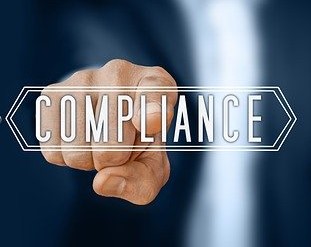 A recent SRA fine has highlighted the fact that individual lawyers can’t hide behind their firm in the instance of disciplinary action from the SRA.
A recent SRA fine has highlighted the fact that individual lawyers can’t hide behind their firm in the instance of disciplinary action from the SRA.
Often there is a misconception from lawyers that responsibility lies solely with the law firm, however individuals are as much at risk as firms when it comes to fines and reprimands if their compliance is deemed to be not up to scratch.
Background
The case in question relates to a lawyer who faced disciplinary action for misconduct in five conveyancing transactions between April 2017 and May 2019. The core issue was his failure to perform adequate client due diligence (CDD), leading to ambiguity about his clients’ identities in these transactions.
His actions were deemed serious, potentially harming public trust in the legal profession, and not complying with anti-money laundering laws. Consequently, he – and not the firm he worked for – was fined £15,000 and ordered to pay costs of £1,350.
The SRA highlighted several red flags and unusual features in the transactions indicative of money laundering risks:
+ Payments for properties were made directly to the firm’s client account by unrelated third parties, including one from an individual in a high-risk country.
+ A rapid increase in the value of a property in a back-to-back transaction.
+ Direct payment of a portion of the purchase price between the buyer and seller, bypassing the firm.
+ The use of a loan for funding from a non-institutional lender in one case.
In another case, the funds were provided by one company, but the property was registered to another company.
The solicitor did not adequately investigate the origins of the funds, or the third parties involved. Furthermore, he failed to maintain proper documentation and records of the transactions.
Increasing SRA powers
The broader context here is that the SRA is continuing to step up its fight against economic crime.
Last summer, the SRA raised the matter of its new fining powers, which include being able to fine individual solicitors up to £25,000. It also seeks to penalise partners who have allowed misconduct to happen on their watch.
Automatic fixed penalty fines – previously reserved for low-level breaches – are being considered for elements of AML non-compliance in a bid to crack right down on non compliance in a more timely way. .
How can conveyancers navigate this?
The SRA will expect to see what controls lawyers have in place to protect their firm. Be sure to document considerations, controls and steps taken within a practice wide risk assessment.
It’s important never to lose sight of underlying rules that apply to all solicitors. These include rule 8.1 of the SRA code of conduct – you identify who you are acting for in relation to any matter. All departments and regulated individuals, regardless of the work being undertaken, need to have a clear understanding of who clients are.
The stakes for non-compliance are ever higher as the SRA increases its fining powers, and the burden on all lawyers is growing as we grapple with myriad factors exposing those operating in the profession.
Harriet Holmes is AML Services Manager at client compliance platform Thirdfort


The same law applies to estate agents. Luckily for them they aren’t as heavily regulated as Solicitors.
The amount of information we have to gather and consider before starting work is immense.
You must be logged in to like or dislike this comments.
Click to login
Don't have an account? Click here to register